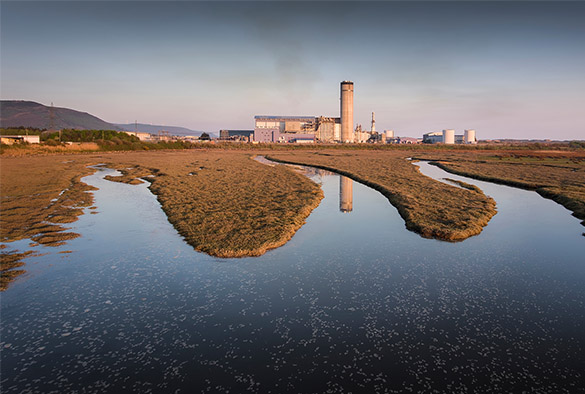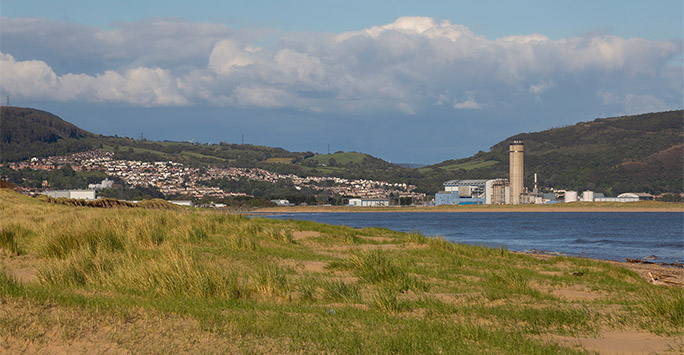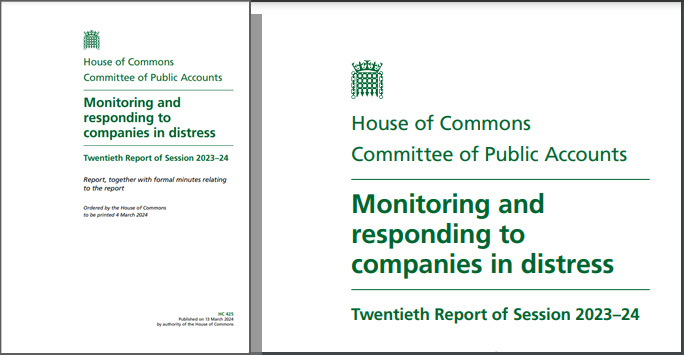
Double impact: Dr. John Tribe quoted in both Parliamentary report on "Monitoring and Responding to Companies in Distress" and High Court judgment.
School of Law and Social Justice insolvency academic, Dr. John Tribe, has been cited in the recently published House of Commons' Public Accounts Committee’s inquiry on "Monitoring and responding to companies in distress."
The Public Accounts Committee is a cross-party committee of MPs. The committee have been examining how government has responded to high profile insolvencies such as Carillion, Thomas Cook, and British Steel against the backdrop of the Covid pandemic and the various financial support mechanisms that were available to business.
Dr. Tribe's comments on the Baglan Bay liquidation have been used by the Committee in their report. Following the liquidation of a large energy company in South Wales, the former site of a power station in the Baglan Bay area has been left to fall into disrepair. Vandalism, theft, and severe health and safety concerns are now pressing at the site of the former energy producer.

Baglan Bay, Port Talbot. Photo by Leighton Collins (via Shutterstock - Editorial use only).
The land at Baglan Bay was disclaimed by the Official Receiver as onerous property and so passed to the Crown Estate through an ancient process known as escheat. The Crown Estate in turn has accepted no responsibility for the site or its ongoing care. There is a long-running convention, based on legal advice, that the Crown Estate does not have to take responsibility for this "ownerless" land. This strange anachronistic vacuum of responsibility is what has given rise to the issues that are now being faced by the local community in and around Baglan Bay.
Dr Tribe has written about the importance of communitarian bankruptcy approaches, as well as the problems associated with disclaimer and escheat. Approaching insolvencies in a way that helps local communities would help avoid the kind of situation that has arisen in Baglan Bay.
Commenting on the Parliamentary Committee's use of his evidence Dr. Tribe said:
"I am pleased that the Committee have responded to the evidence on escheat and disclaimer and the effect this can have on the long-term viability of an important area such as Baglan Bay in South Wales. Government and the Crown Estate must ensure that land is left in a safe and suitable manner following liquidation. More broadly, we must design our insolvency laws so they take account of community interests, such as those in the Baglan Bay area."
In the same month, one of Dr. Tribe’s books has also recently been supportively cited by Mr Justice Richards in his judgment in Drelle v. Servis-Terminal LLC [2024] EWHC 521 (Ch) (11 March 2024), a bankruptcy case involving a Russian debtor and a disputed debt.
House of Commons Committee of Public Accounts: Monitoring and responding to companies in distress (Twentieth Report of Session 2023-24)
Dean of the School of Law and Social Justice, Professor Valsamis Mitsilegas, said:
“It is fantastic to see that both Parliament and the judiciary are benefiting from the work of our academics here at the School of Law and Social Justice.
“It is important that our research work has impact in the wider world beyond academia.
“For a number of years John has been contributing to policy and legislation development as a leading authority on insolvency matters and this “double citation” is great to see.”
Find out more
- Visit Dr John Tribe's staff profile page
- Read the House of Commons Committee of Public Accounts report on Monitoring and responding to companies in distress (PDF)
